
Starfield
A Beautiful, Busted Space Sim That Can’t Get Out of Its Own Way
GAME REVIEW
Drez
6/30/2025

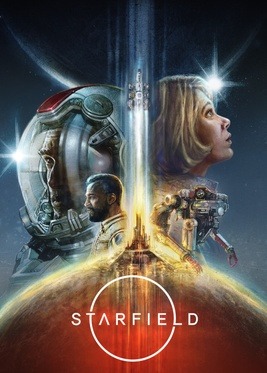

72
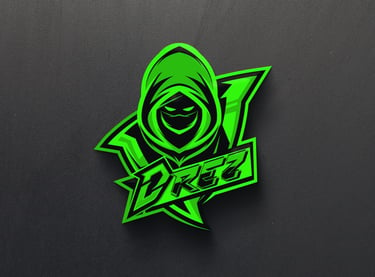

Strapped to a Stranger's Ship in Space
One of my first experiences in Starfield involved a man named Barry, a stolen ship, and a complete absence of oxygen. I don't remember why I followed him, but I do remember that he started monologuing about the stars as we drifted in a ship that wasn't his and probably shouldn't have been mine either. Somewhere between suffocating and stealing, I realized Starfield isn't really about space. It's about space-themed chaos sometimes by design, more often by necessity. Bethesda's latest open-world monstrosity launched in 2023, and depending on who you ask, it either cured boredom or created new species of it. In classic Bethesda fashion, this is a game that’s both massive and kind of hollow, like a beautifully decorated cake that someone forgot to bake. The bones are there: factions, ships, deep-space cults, sketchy billionaires, alien horror. But Starfield wants you to bring your own spark. And sometimes, you do. Other times, you wander barren planets thinking, "I paid real money for this."
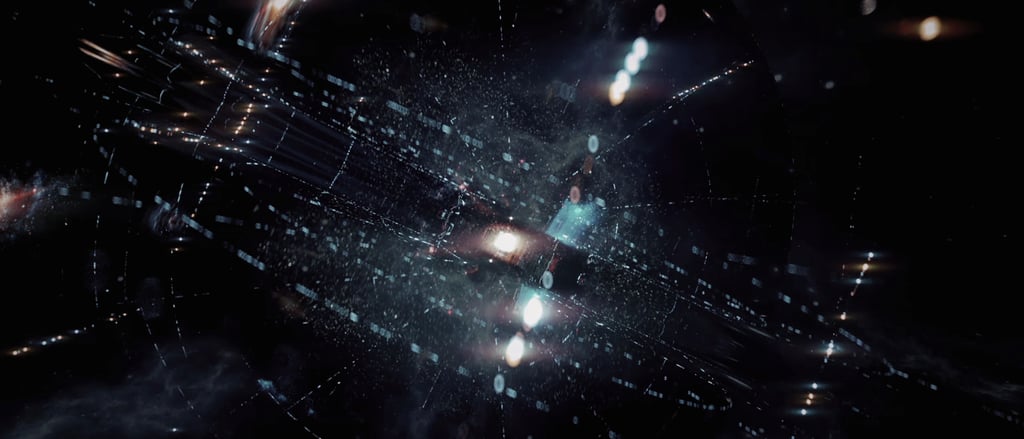

Space is Beautiful, Until It Talks
The world, or rather, the galaxy of Starfield is genuinely massive. There are hundreds of planets, many of which exist solely to remind you that rocks can be boring too. When the game leans into handcrafted quests and atmospheric storytelling, like the UC Vanguard's alien horror storyline, it feels alive. That particular mission had actual dread, tension, and a payoff. It's Bethesda flexing just enough to remind you why you keep showing up. But outside of the main questlines (which are, surprisingly, all pretty solid), the world often leans too hard into being a simulation. You meet a lot of people who look at you like they're running late to another RPG, and dialogue that occasionally sounds like it was copied from a brochure for a mid-tier cruise line. Some companions are memorable, others feel like they were AI-generated in a rush. There's a loop of fetch, shoot, return, repeat that doesn’t always evolve. The best parts of the game are the ones where you're clearly not supposed to be, the shady corners of space, the weird cults, the uncomfortable science. But those parts aren't always easy to find unless you deliberately chase them, and not everyone wants to work that hard for good content.
Combat Is Just... More Bethesda
If you were hoping that Bethesda reinvented their combat system for a galactic leap, stop. It's Fallout 4 with jetpacks. The shooting is functional, occasionally fun, but never transcendent. The powers, introduced later in the game, feel like a leftover Skyrim idea awkwardly ported into zero gravity. They're flashy, sure, but mostly pointless unless you go out of your way to build around them. That said, the ship combat? Genuinely cool. The mechanics aren't perfect, but building your own spaceship, designing it like an unholy mix of a Winnebago and a war machine, and then watching it zip through a dogfight? That hits. Base-building, if you're into that, is equally deep, though it's about as thrilling as managing a galactic Home Depot. Some people love that. Others click once and never return. Progression drags the longer you play. Making money requires too much effort for what you get, and unless you're roleplaying as an intergalactic accountant, it becomes a chore. That financial drag dampens the thrill of upgrading your gear or ship. You spend so much time scraping by that the power fantasy never fully lands.
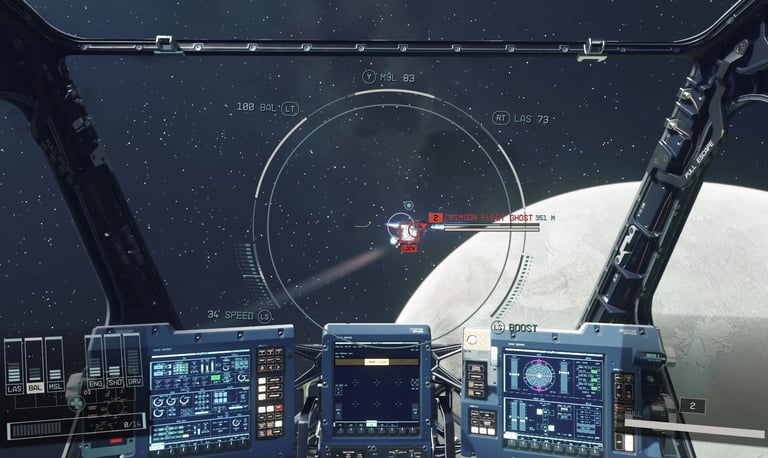

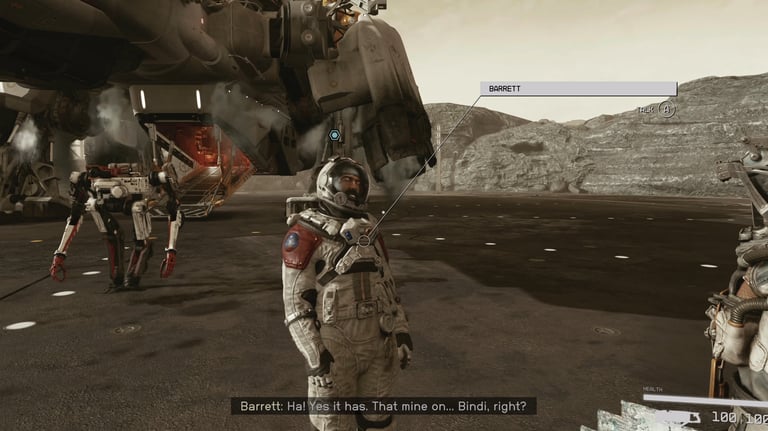

The Sound of Empty Planets
Visually, Starfield is inconsistent. On a good day, the lighting hits just right, and the surface of a distant moon makes you stop and stare. On a bad day, you clip through a rock and remember that the Creation Engine is basically held together with duct tape and nostalgia. Animations vary from decent to deeply cursed, with facial expressions that often look like someone just remembered they left the stove on. The sound design, however, mostly slaps. The ambient music is a highlight, sweeping, orchestral, sometimes haunting. Voice acting is all over the place. The main characters do their job well enough, but background NPCs will remind you that not all performers were born equal. Occasionally, someone yells something during a firefight that sounds like it was recorded in a completely different emotional universe. The UI, meanwhile, is aggressively mid. Basic inventory management feels like trying to organize your taxes with oven mitts on. It shouldn't be this annoying to find a sandwich in space.
Originality or Just a New Coat of Stars?
Starfield is not revolutionary. It borrows liberally from Skyrim, Fallout, Mass Effect, and No Man's Sky, but adds little that's truly new. It’s more of a Bethesda milestone than a genre one. If you grew up on their games, this will feel familiar, and maybe that’s enough. But if you expected something bold, genre-defining, or wildly creative? You might find yourself waiting for a ship that never arrives. Where it does earn points is scale. There's something impressive about the sheer number of systems, skills, and customization options, even if most of them lead to slight variations on the same experience. The skill system is rewarding, and you can clearly build toward your playstyle. But it doesn’t reinvent the wheel; it just gives you a really big one and tells you to spin it yourself.
A Strange But Lasting Orbit
The weird thing about Starfield is that it's both forgettable and memorable, depending on how much work you’re willing to put in. If you push deeper into the factions, build your perfect ship, lean into the weirder side quests, and experiment with the systems, you’ll find moments that stick. But if you play it passively, hoping the game throws you into greatness, you’re more likely to get space fatigue. And the ending? It works better the more you invest. It actually tries something. But even then, it doesn’t totally earn its weight because so much of the game feels disconnected. You can tell the writers wanted it to mean something. The devs just didn’t always give you a reason to care. For every glorious space battle or haunting derelict moon, there's an awkward conversation or flat planet waiting to kill your momentum. Starfield is both overstuffed and undercooked. It’s a feast where half the food is cold, but you keep eating because somewhere in there is the flavor you remember loving. This is a game that tries to be everything, and ends up being... a lot. Not all of it good. But some of it? Some of it is why we keep showing up for Bethesda games, even when we know better.
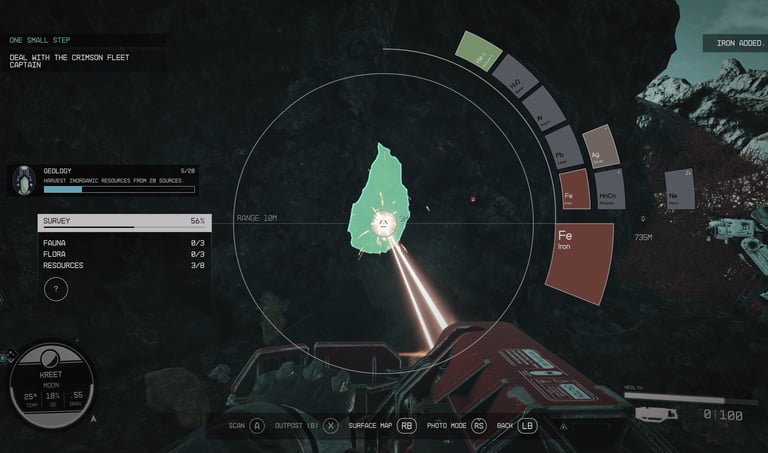

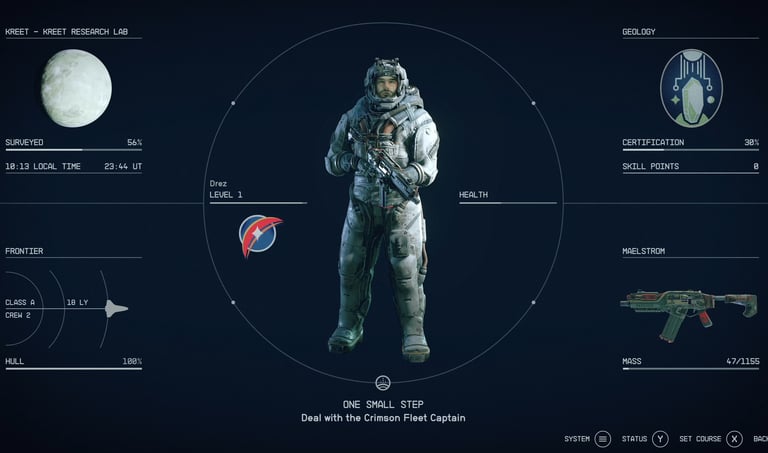

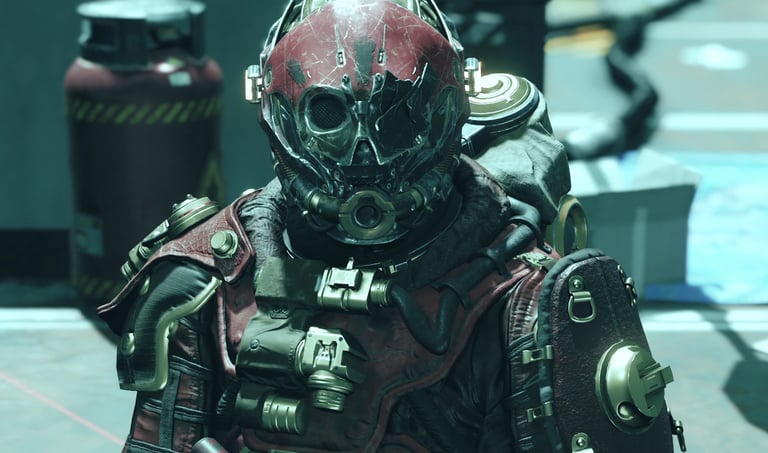

Wrap It Up and Launch It
Starfield is for the patient, the curious, and the chaos-seekers. It’s not the future of RPGs, but it is another messy love letter from a studio that can’t seem to help itself. If you want a cinematic, curated space adventure, you’re gonna get annoyed. But if you’re the kind of player who likes poking holes in the world to see what breaks, there’s something here worth exploring. Even if half the universe is empty. The good? Faction quests hit hard, especially if you dig sci-fi horror. The shipbuilding is a rabbit hole worth falling into. The scale is bonkers. The skill tree gives you a real sense of progress. The bad? NPCs often feel lifeless. Dialogue is better, but not great. Powers feel tacked on. Making money is weirdly grindy. Combat rarely evolves. And sometimes, space just feels... empty. But if you’re willing to bring the fun yourself, Starfield doesn’t get in the way. It just doesn’t always help either.